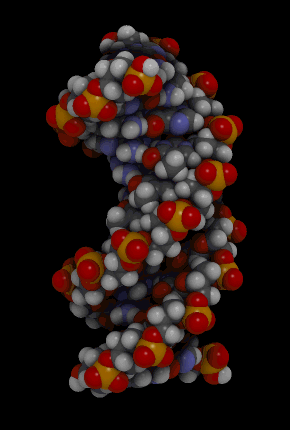Write4U
Valued Senior Member
It hijacked the regular term "permit" and applied it to a very specific and exclusive scientific condition.How can defining a new term, using a word that did not previously exist, be hijacking?
It hijacked the regular term "permit" and applied it to a very specific and exclusive scientific condition.How can defining a new term, using a word that did not previously exist, be hijacking?
There is something badly wrong with your mind. “Permit” is not the same word as permittivity.It hijacked the regular term "permit" and applied it to a very specific and exclusive scientific condition.
So the disqualifier is their common denominator and fundamental functionality ?. “Permit” is not the same word as permittivity.
I would say, rather, that it is the enfolded functional potential of their hive mind, cf. Anal Seth.So the disqualifier is their common denominator and fundamental functionality ?
I have vague memories from school Latin. What are the four verb parts again? Something to do with present tense, infinitive, perfect tense and subjunctive?Baldeee said:The verb in Latin is mito, mittere, misi, missum.
In English we have tended to take the past participle, in this case missum, drop the -um, and then use that as the root of the adjectives and nouns from that verb.
No the fourth one is the past participle, not subjunctive.I don't want to distract too much from the valid criticisms of Write4U's invention of language, but this caught my eye:
I have vague memories from school Latin. What are the four verb parts again? Something to do with present tense, infinitive, perfect tense and subjunctive?
Doesn't that make missum something to do with the subjunctive, and not the past tense?
(And, while we're at it, can somebody please remind me what the subjunctive is, again?)
----
On the matter of Write4U, the only comment I have is that it constantly puzzles me as to why the man won't gracefully accept correction of his errors. Why does he instead look for straws to grasp at, to try in vain to justify whatever his most recent sinking ship is? To me, it smacks of an unwillingness to learn anything.
Yes, you're right (and so was Baldeee, I think). Thanks. I should have just googled it in the first place.No the fourth one is the past participle, not subjunctive.
To correct what I said before, the fourth principle part is more correctly the supine, I believe.Fourth Principal Part: perfect participle passive (typically the masculine singular nominative)
missum - "He was sent" or "him having been sent". amatum - "He was loved" or "him having been loved".
The last one is used in constructing certain other tenses, too, especially in conjunction with the verb "to be".
The subjunctive is a mood that expresses a desire, wish, possibility, a hypothetical situation etc.The subjunctive is a different thing. (Thanks for the explanation.)
I started reading your post but, stopped after reading this.It might look like the participle, but not all verbs have the passive while they usually still have a supine (e.g. to sit - sideo, sidere, sedi, sessum).
Presumably, then, you have the same difficulty with “capacitance” and “inductance”, both of which are related to the generally used words “capacity” and “induction”, yet are technical terms, coined specifically for use in science and engineering.OK, let me put this in another way. The term "permittivity" is a derivative of the term "permittive" which does not exist. I find that odd.
False equivalence. Try to find an example that supports my argument.Presumably, then, you have the same difficulty with “capacitance” and “inductance”, both of which are related to the generally used words “capacity” and “induction”, yet are technical terms, coined specifically for use in science and engineering.
No one else seems to find this strange.
https://wikidiff.com/permission/permittanceAs nouns the difference between permittance and permission is that permittance is the act of permitting; allowance; permission; leave, while permission is authorisation; consent (especially formal consent from someone in authority.
By definition, a perfect vacuum has a relative permittivity of exactly 1 whereas at standard temperature and pressure, air has a relative permittivity of κair ≈ 1.0006.
Relative permittivity is directly related to electric susceptibility (χ) by �=�−1, otherwise written as �=�r�0=(1+�)�0

https://en.wikipedia.org/wiki/PermittivityThe term "permittivity" was introduced in the 1880s by Oliver Heaviside to complement Thomson's (1872) "permeability".[4][irrelevant citation] Formerly written as p, the designation with ε has been in common use since the 1950s.
I do not think this is correct: "permittivity" is not a derivative of "permittive" but instead seems to be a variation on, as mentioned before, "permissivity".OK, let me put this in another way. The term "permittivity" is a derivative of the term "permittive" which does not exist. I find that odd.
The odd / strange thing here is that you're not taking on board what people are telling you.False equivalence. Try to find an example that supports my argument.
permit - permission? - permittance - permittivity. But no permittive, I find that strange and illogical.
No, I am trying to derive permittivity from permittive. But that word does not exist.However, it is clear that you are trying to derive "permittive" from "permittivity".

When I tested the sentence with "vacuum is a permissive condition" it did not sound right.I'm assuming at this point that you do know of the word "permissivity", and thus you deliberately put "permittivity" into that string of words?
Why did you do that?
Vacuum permittivity
From Wikipedia, the free encyclopedia
This article is about the electric constant. For the analogous magnetic constant, see Vacuum permeability. https://en.wikipedia.org/wiki/Vacuum_permeability
It is not an ordinary derivative.When I tested the sentence with "vacuum is a permissive condition" it did not sound right.
But "vacuum is a permittive condition" sounds entirely logical. It was a matter of aesthetics.
my question is ; "Why is there objection to such an ordinary derivative of "permit"?
Permeability came to the English language from the Latin word permeabilis.Where is the consistency?
Thanks for the question.When you say "vacuum is a permittive condition", what do you actually mean?
The compounds found in living things are known as biochemical compounds. Biochemical compounds make up the cells and other structures of organisms and carry out life processes. Carbon is the basis of all biochemical compounds, so carbon is essential to life on Earth. Without carbon, life as we know it could not exist.
Why is carbon so basic to life? The reason is carbon’s ability to form stable bonds with many elements, including itself. This property allows carbon to form a huge variety of very large and complex molecules. In fact, there are nearly 10 million carbon-based compounds in living things!
Most biochemical compounds are very large molecules called polymers. A polymer is built of repeating units of smaller compounds called monomers. Monomers are like the individual beads on a string of beads, and the whole string is the polymer.


He never really does. He's sort of in his own little world.The odd / strange thing here is that you're not taking on board what people are telling you.
You told him that "permittive" isn't a real word, and why. He has ignored all that.I think "permissive" is an anthropomorphized word as granted.
I believe "permittive" is more formal and abstract in essence, as condition.
This sort of question is always a waste of time with Write4U. The answer is that he doesn't actually mean anything. It's "abstract in essence, as condition". Don't you see? Write4U's words mean exactly what he wants them to mean, and their meanings can fluidly change to be whatever he needs them to be from moment to moment. This is more formal and abstract in essence, you see.When you say "vacuum is a permittive condition", what do you actually mean?
The vacuum has physical restrictions. For instance, the vacuum is empty of matter, by definition. Unless you're using your own "more abstract" definition of "vacuum", of course. In that case, anything goes, because words no longer need to have set meanings in the Write4U world. (Idle thought: would anybody pay Write4U to write for them?)The term "permittive" suggest a condition or medium without physical restrictions restrictions.
Word salad.Assuming a timeless, dimensionless, permittive condition at the instant of the BB and the Inflationary Epoch where the singularity expanded at FTL for an instant allowing a geometry to form that then began to guide the mathematical evolution of the universe.
More word salad. Come on. This doesn't actually mean anything. Admit it.I particularly like CDT (causal dynamical triangulation) as it actually uses a fractal value as the fundamental particles that are causal to the formation of spacetime and all it's physical expressions of inherent mathematical potentials (patterns).
Non sequitur, apparently unrelated to anything that came before.Surely, if any creation takes place it must be at this level of quantum values that are suitable for biochemical evolution.
Right! It's literally called "The Table of the Elements"!The Table of Elements is the Elementary menu of this Universe.
How do you know what's necessary to produce life?The evidence shows that there are many more elements to spacetime than is necessary to produce life in a dynamic. Life in this universe is only based on about 500 different biochemicals.
The obligatory irrelevant cut and paste.Chemical Compounds in Living Things
